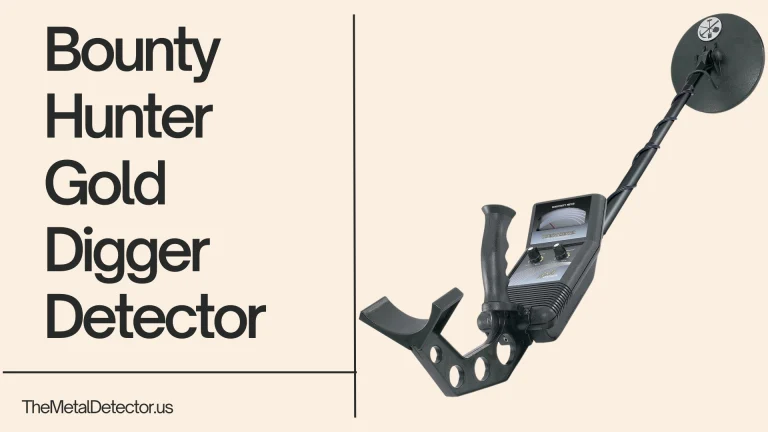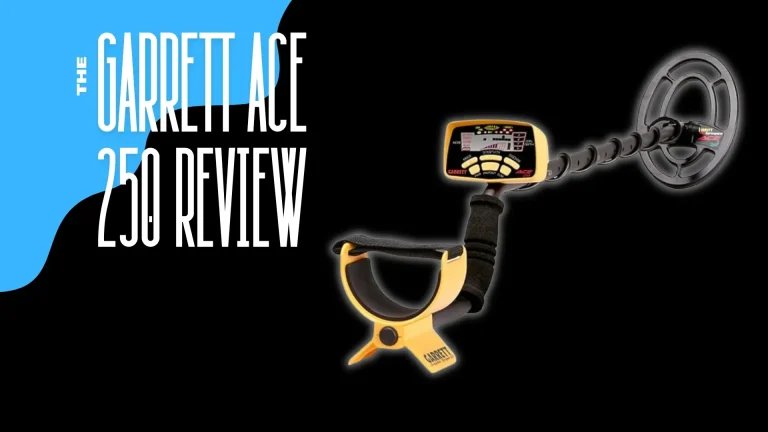Does Aluminium Set Off Metal Detectors | Briefly Explained

Metal detectors are designed to detect various types of metals, including aluminium. These devices work by emitting electromagnetic fields that respond to metal objects, alerting the operator when something is detected. Although aluminium is non-magnetic, it is still detectable due to its high conductivity, making it easy for metal detectors to identify it. So, does aluminium set off metal detectors? The answer is yes, aluminum can trigger these devices.
Whether it’s in the form of aluminium foil or other everyday items, aluminium can trigger metal detectors at security checkpoints or during treasure hunting. Many often wonder, do metal detectors detect aluminium? The reality is that while not all detectors are specifically tuned to detect aluminium, many modern detectors can identify it alongside other metals like iron, copper, or gold.
Understanding how aluminium interacts with these detectors can help people better prepare for security screenings or metal-detecting activities. In this detailed article, I will provide you with all the necessary knowledge you need to know about metal detectors and their relationship with aluminium.
Daily Interactions with Aluminium and Metal Detectors

Aluminum is a metal we encounter daily in many forms, like soda cans, kitchen foil, and electronics. These everyday items often trigger metal detectors, especially in places where security is crucial, such as airports and public buildings. Understanding how metal detectors respond to aluminium can help in navigating security checks smoothly.
But what does aluminium foil block metal detectors? Aluminium foil might block X-rays, but it doesn’t stop metal detectors from identifying it.
Common Items Containing Aluminium
Aluminium is present in many everyday items that we often use. Some common examples include aluminium foil, soda cans, and certain types of packaging. Beyond these, many of our personal gadgets, like smartphones, laptops, and even keys, contain aluminium components. Being aware of which of your belongings contain aluminium is useful, especially when passing through metal detectors, as these items can trigger security alarms.
Security in Airports, Schools, and Public Spaces
Metal detectors are a common feature at security checkpoints in airports, schools, and public buildings. These devices are designed to detect various metals, including aluminium, to ensure the safety of everyone. Items containing aluminium, like electronics or even small objects such as keys, can set off these detectors. Knowing this in advance can help you prepare by placing your aluminium-containing items in the trays provided for screening, making the security process quicker and more efficient.
If you are looking to buy a best metal detector in but your budget is limited then you can consider buying the Bounty Hunter tracker 4 metal detector. It can help you tackle various tasks and will never let you feel that you are not using a high end metal detector.
Various Uses of Metal Detectors
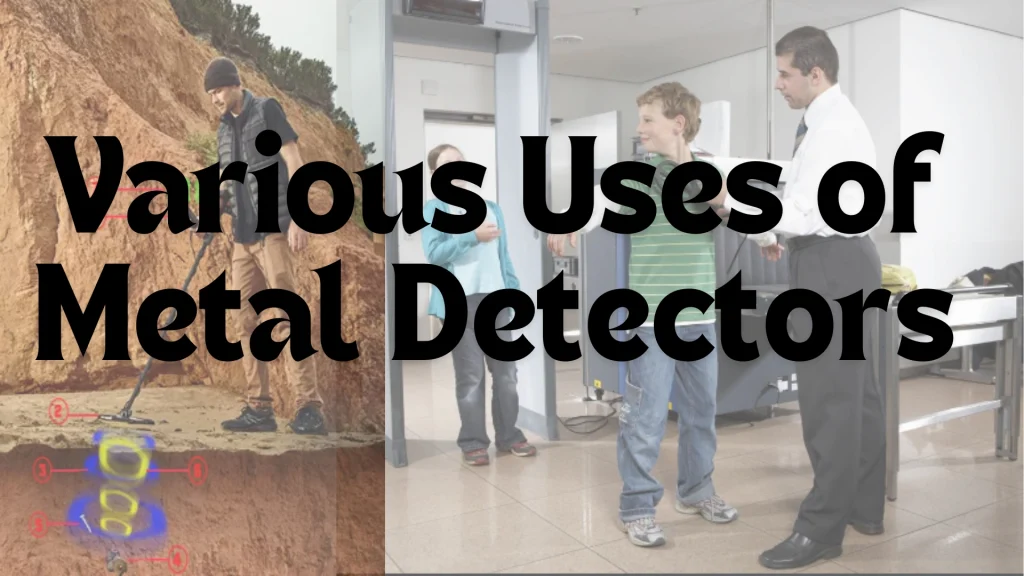
Metal detectors are used in various scenarios, from ensuring safety at events to personal metal detecting. These situations require different approaches to make the best use of metal detection technology. Understanding how metal detectors are used in these environments can help improve efficiency and detection accuracy.
Event Security Checking with Metal Detectors
At large events like concerts, sports games, and festivals, metal detectors are a key part of ensuring the safety of attendees. Security teams use them to scan for potentially dangerous items, and aluminium objects, such as cans or foil-wrapped snacks, can set off these detectors. To avoid delays at security checkpoints, it’s helpful to be mindful of any aluminium-containing items and place them aside before walking through.
This simple step speeds up the security process and helps staff keep the event safe for everyone.
Personal Use for Professionals
Professionals, particularly those who enjoy metal detecting as a recreational activity, often encounter aluminium when searching for treasures. Aluminium debris, such as cans or foil, is commonly found in parks or beaches, making it necessary for hobbyists to differentiate between trash and valuable finds. Advanced metal detectors with discrimination features allow hobbyists to filter out unwanted aluminium signals, improving their chances of locating more desirable targets.
This knowledge is especially helpful when metal detecting for fun, making the experience more productive and enjoyable.
You can consider buying my personal favorite metal detector which is the Bounty hunter gold digger detector. It can help you uncover hidden treasures and gems.
Managing False Alarms and Improving Detection Precision
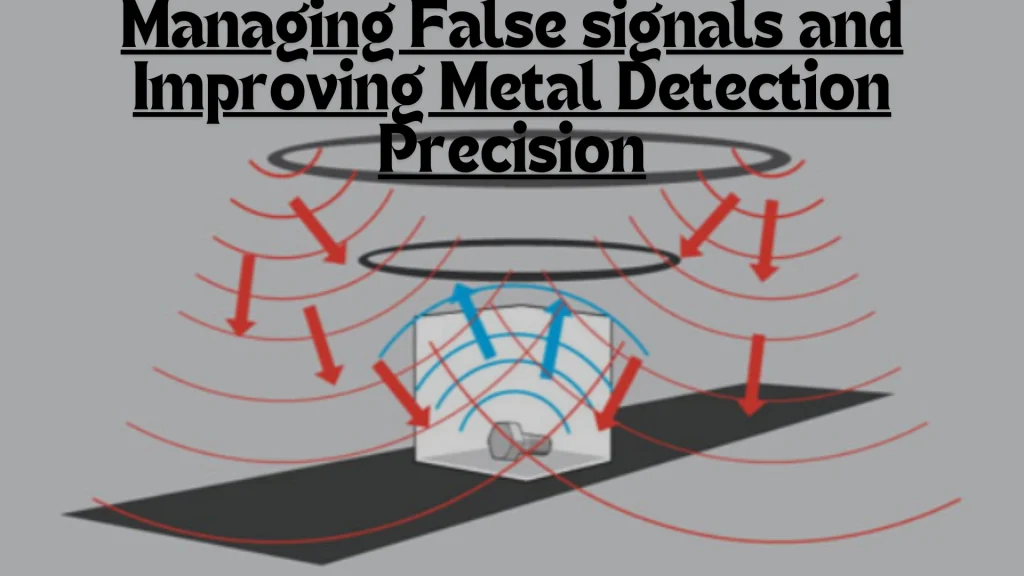
Using metal detectors effectively involves understanding how to handle false alarms, which can occur when everyday items trigger unnecessary alerts. Knowing how to manage these situations can improve detection accuracy and make the experience more efficient.
Recognizing and Managing False Signals
False alarms happen when metal detectors mistakenly detect harmless items as threats. Everyday objects made from aluminium, such as gum wrappers, foil, or beverage cans, are common causes of these false alarms. These can create delays at security checkpoints or during personal use of metal detectors.
The key to minimizing false alarms lies in understanding what triggers them and how to adjust your detector to avoid unnecessary alerts. This knowledge helps make the detection process more accurate and less frustrating.
Tips for Reducing False Alarms
To reduce false alarms, it’s important to adjust the sensitivity settings on your metal detector according to your needs. For security purposes, higher sensitivity may be necessary to catch all metal objects, while for personal use, you might want to filter out small aluminium items. Before passing through a metal detector at a security checkpoint, removing obvious aluminium objects can prevent unnecessary alerts.
Investing in metal detectors with advanced discrimination features can also help fine-tune the detection process, allowing users to focus on valuable metals while ignoring common aluminium items.
If you are a person with metal detecting hobby then the bounty hunter discovery 1100 metal detector will be your best companion and you can easily buy it from our website.
Setting Up Metal Detectors for Security

Setting up a metal detector for security purposes requires careful attention to calibration, sensitivity, and regular maintenance to ensure optimal performance. These steps are essential for accurate detection and smooth operations in high-security environments like airports, schools, or events.
Adjusting Calibration and Sensitivity for Best Results
Calibrating the metal detector is the first step in ensuring it works accurately. Sensitivity settings determine how well the detector identifies metal objects. If the sensitivity is set too high, the detector may trigger false alarms for small items like aluminium foil, while too low settings may cause it to miss critical objects.
To achieve the right balance, adjust the sensitivity based on the environment and the type of metal you are targeting. For example, setting it to detect non-ferrous metals like aluminium is useful for specific security needs. Regularly test the detector with different metal items to ensure it responds accurately and adjust settings as needed to maintain reliability.
Routine Maintenance and Performance Testing
Regular maintenance is essential for the long-term performance of a metal detector. This includes cleaning the coils, inspecting parts for wear, and checking the device’s response to metal objects. Dust and debris can interfere with its function, so cleaning and proper care are important.
Testing the detector with various metal objects, including aluminium, ensures that it continues to work as expected. Routine checks help detect any issues early, ensuring the detector operates efficiently and reduces the risk of false alarms or missed threats. A well-maintained metal detector improves security and ensures a smooth flow of operations.
The Physics of Metal Detectors and Aluminium Detection
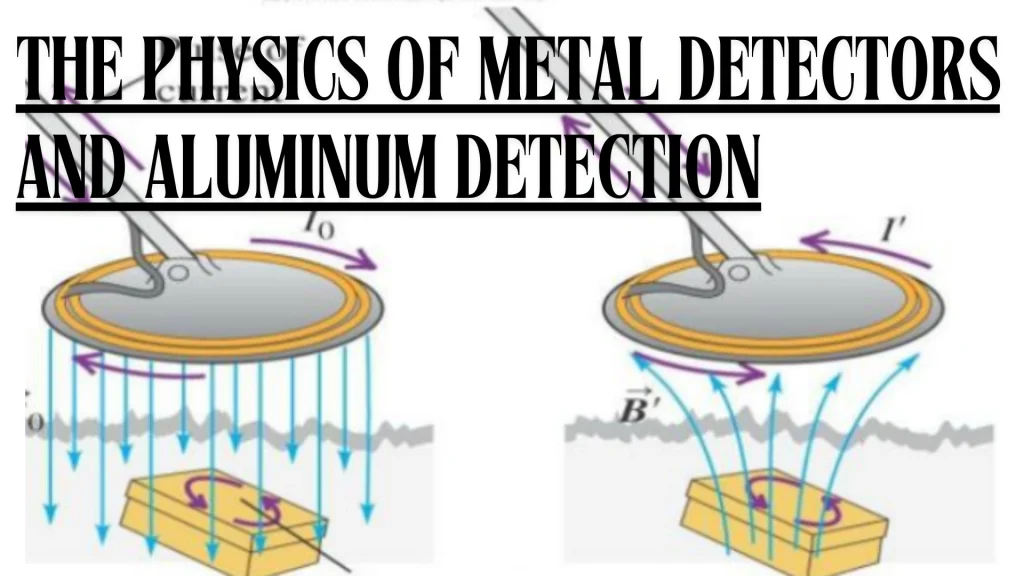
Metal detectors work by transmitting a magnetic field through a coil, interacting with various metals in different ways. Ferrous metals like iron and steel are easier to detect because of their magnetic properties. However, detecting non-ferrous metals, such as aluminium, can be more challenging. Non-ferrous metals are not magnetic, but they still conduct electricity, which allows them to be detected by metal detectors.
Metal Detection Mechanism Explained
Metal detectors operate by emitting an electromagnetic signal from a coil. When this signal comes into contact with a metal object, it creates a field around the object. This interaction is picked up by the detector’s receiver coil, which processes the signal and alerts the user, either through sound or a visual display. Advanced metal detectors, like those made by Garrett, are designed to enhance detection accuracy by adjusting settings based on the type of metal being searched.
Identifying Non-Ferrous Metals, Including Aluminum
Aluminum is a non-ferrous metal, meaning it doesn’t contain iron and isn’t magnetic. Despite this, aluminium can still be detected due to its high conductivity. Objects like aluminium cans and foil often trigger metal detectors. The challenge lies in distinguishing aluminium from other metals.
Many detectors are equipped with discrimination features that allow users to filter out unwanted metals. This is helpful when you don’t want to detect aluminium, but if you’re searching specifically for it, these settings can be adjusted.
Misconceptions About Aluminum and Metal Detectors
There’s a common belief that aluminium can block metal detectors, but this is a myth. In reality, aluminium is easy to detect because of its conductive nature. While aluminium foil might block X-rays used by airport security, it doesn’t inhibit metal detectors from identifying the metal itself.
Conclusion (Does Aluminium Set Off Metal Detectors)
Metal detectors are effective in detecting aluminum due to its high conductivity, despite being a non-magnetic metal. Everyday items like soda cans, foil, and gadgets containing aluminium can easily trigger these detectors. Whether for security purposes at airports and events or recreational metal detecting, understanding how aluminium interacts with metal detectors is essential.
By adjusting sensitivity settings and utilizing advanced features, users can minimize false alarms and improve detection accuracy. Proper knowledge of these interactions ensures smoother experiences during security screenings and metal-detecting activities.

